 Saluting our veterans who contribute value and represent the best of society
Saluting our veterans who contribute value and represent the best of society
Some may classify our military veterans as valuable gems among us, but that wouldn't necessarily do them justice.
Gems traditionally and typically are used for investment and transactional purposes as well as to represent and signify appreciation, commitment, love and respect for someone. In short, gems may be worth a significant amount of money, but for the most part they function as baubles and bling to feed and showcase ego and self-worth, decorative gilding in general with underlying roots for some.
Those with military experience exceed far beyond surface value, regardless of how many earned medals adorn their dress uniforms as active or retired enlisted and commissioned men and women.
Our military veterans should be considered more valuable than gems.
They are, in fact, more appropriately like societal rare earth minerals.
Yes, there's a difference.
Gems, by and large, are for show (yes, some can be used for cutting and in lasers). Rare earth minerals are used to make computer chips that power airplanes and jets, automobiles, drones, robots, smartphones, televisions and a host of other necessary and useful devices, products and technologies that make the world go — including more recently, artificial intelligence (AI).
Further, gems represent a sense of personal pride that attract attention. Rare earth minerals represent ore and a sense of giving back to humanity and society.
Of course, our military veterans signify a different type of AI; from their life experiences, from their dedicated sacrifices, from their devoted service, they serve as authentic intelligence. They use what they've seen, learned, heard and accomplished to motivate, mentor, lead and encourage others.
The value of such advanced AI far exceeds cryptocurrency because it extends throughout history, linking the past with the present and projecting through the future.
For this reason, Bellwether League Foundation (BLF) chose to recognize and salute veterans among its ranks as part of a living document that will be continually updated based on the amount and volume of information received that can be shared with the world.
Last year, the Employee Benefit Research Institute (EBRI) conducted a study of veterans' attitudes and wellness within the workforce and workplace, the results of which were shared at the start of 2025.
Among the nuggets in EBRI's 25-page "Satisfaction After Service: Findings From a Focus on Veterans in the 2024 Workplace Wellness Survey," is that "veterans tended to report higher levels of financial wellbeing, social wellbeing, emotional wellbeing and workplace wellbeing than their non-veteran counterparts." Another key finding is that "veteran workers were more likely to report intending to stay with their current employer for the immediate future than non-veteran workers." In essence, they are happy and willing to serve and faithfully dependable and reliable.
Our take: The over-arching reason why veterans have higher levels of wellbeing? Their sacrifice and exposure to danger and mortality gave them a deeper appreciation for life and for serving others. We respect what they did, what they do and who they are.
Back in April, BLF started asking Bellwether Hall of Famers, Ammer Honorees and Future Famers to share with us some basic information about their military service, encouraged in part because the 18th annual Bellwether League Foundation Induction & Recognition Event (BLFIRE18) was being held the day before Veterans Day and on the 250th anniversary of the United States Marine Corps.
A few good men participated initially, even as some demurred. But this represents a start that is intended to deepen and expand even as BLF grows.
BLF appreciates and thanks those who have participated so far as first movers and looks forward to adding and sharing the example of others.
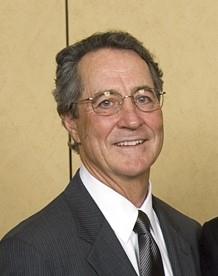
Ted Almon, Bellwether Class of 2010, Chairman, Claflin Co., Warwick, RI
• Branch(es) served: United States Army
• Years served: 1969-1971
• Highest rank at honorable discharge/retirement: First Lieutenant
• How did your military experience contribute to your career in healthcare supply chain? As a retiring officer my job search was facilitated by Lendman Associates whose clients were companies seeking to recruit military officers. I was hired by Baxter Labs and rose through the ranks there until 1976 when I left to become CEO at Claflin in my hometown of Providence, RI.
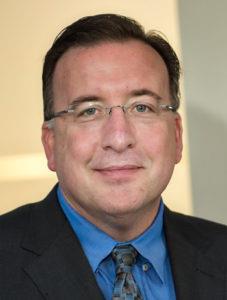
Joe Colonna, BLF Philanthropy Committee member 2025, Chief Supply Chain and Project Management Officer, Piedmont Health, Atlanta
• Branch(es) served: United States Air Force
• Years served: 4 years
• Highest rank at honorable discharge/retirement: E4 — Senior Airman
• How/what does military experience contribute to the healthcare supply chain? The USAF decided I should be a "Medical Material Specialist," and the rest is history.
• How did your military experience contribute to your career in healthcare supply chain? The USAF introduced me to a field that I did not know existed and instilled in me a sense of purpose, pride and accountability that has served me well though my entire career.
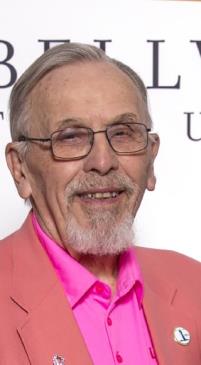
Fred Crans, Bellwether Class of 2020, Healthcare Business Development Executive, St. Onge Co., Cleveland Heights, OH
• Branch(es) served: United States Navy
• Years served: 11 years — 1965-1969, Navy Hospital Corpsman serving as combat medic with Marines in Vietnam, August 1966-September 1967; remained in U.S. Navy Reserves, 1969-1976.
• Highest rank at honorable discharge/retirement: HM3 (E4 — equivalent to Corporal)
• How/what does military experience contribute to the healthcare supply chain? It gave me an appreciation (later, of course) of how important the supply chain is for the ability to wage and sustain a war, and also the importance of logistics and transportation in getting wounded soldiers quickly to the next appropriate site of care. • How did your military experience contribute to your career in healthcare supply chain? It gave me a perspective that I could have gotten nowhere else. Also, as a combat corpsman, it gave me personal experiences I could have gotten nowhere else. It gave me an understanding of both the impact of highly trained teams (the U.S. Marine Corps) and the personal confidence of being able to function successfully under fire — REAL fire.
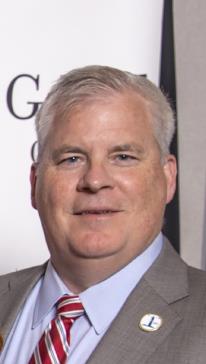
Tom Harvieux, Bellwether Class of 2021, BLF Board Treasurer 2025,
Chief Supply Chain Officer, BJC HealthCare, St. Louis
• Branch(es) served: United States Army & Army National Guard
• Years served: 22 years
• Highest rank at honorable discharge/retirement: Sergeant Major
• How/what does military experience contribute to the healthcare supply chain? Military excels at leadership development and in building teams both of which are directly applicable to healthcare.
• How did your military experience contribute to your career in healthcare supply chain? The military experience gained in leadership and logistics duties helped me immensely in transitioning to a healthcare supply chain career.
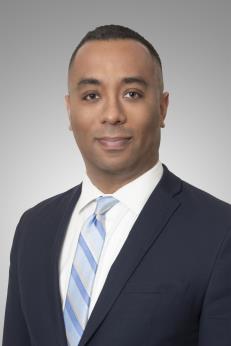
Chico Manning, MHA, CLSSMBB, ACHE, Future Famers Class of 2024, BLF Advisory Council member, System Vice President, Enterprise Supply Chain, PIH Health, Whittier, CA
• Branch(es) served: United States Navy and United States Marine Corps
• Years served: Navy (1989-1994) and Marines (1994—2003)
• Highest rank at honorable discharge/retirement: Major, USMC
• How/what does military experience contribute to the healthcare supply chain? Military experience can significantly enhance the healthcare supply chain through several key contributions:
- Logistics and Supply Chain Management Skills: Military personnel are often trained in sophisticated logistics, inventory management, and supply distribution under challenging conditions, which can be directly applied to healthcare supply chains.
- Disaster Response and Crisis Management: Military experience includes managing resources during emergencies, ensuring rapid response, and maintaining the continuity of care — skills vital during healthcare crises like pandemics or natural disasters.
- Discipline and Process Optimization: Military training emphasizes discipline, standardized procedures, and operational efficiency, leading to streamlined supply chain processes and reduced waste.
- Adaptability and Problem-Solving: Military personnel are accustomed to working in dynamic, unpredictable environments, which fosters innovative solutions to supply chain disruptions or shortages.
- Leadership and Teamwork: Experience in leading teams and working collaboratively under pressure enhances coordination across various stakeholders in healthcare logistics.
- Global Perspective and Cultural Competence: Military deployments often involve working in diverse environments, fostering cultural sensitivity and adaptability critical for international or diverse healthcare supply networks.
Overall, military experience brings a disciplined, efficient, and resilient approach to healthcare supply chain management, improving responsiveness, reliability, and resource utilization.
• How did your military experience contribute to your career in healthcare supply chain? My military experience has significantly contributed to my career in healthcare supply chain management. During my service, I gained extensive training in logistics, inventory control and resource management under high-pressure conditions. These skills have been directly applicable in ensuring the efficient and timely distribution of healthcare supplies, especially during critical situations like emergencies or crises. Additionally, my experience in disaster response and crisis management has helped me develop resilience and adaptability, allowing me to quickly identify and resolve supply chain disruptions. The discipline and standardized procedures emphasized in the military have fostered a strong focus on process optimization, reducing waste and improving operational efficiency. Furthermore, leading teams and collaborating with diverse stakeholders in the military has strengthened my leadership and communication skills, which are vital in coordinating complex healthcare logistics networks. Overall, my military background has instilled a mindset of discipline, adaptability, and strategic thinking — qualities essential for delivering reliable healthcare supply chain support.
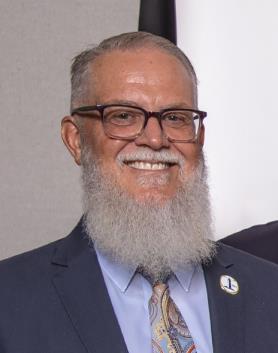
Gary Rakes, CFAAMA, CMRP, CSCS, Bellwether Class of 2021, BLF Advisory Council Chairman, retired System Vice President and Chief Supply Chain Officer, Aspirus Inc., Wausau, WI.
• Branch(es) served: U.S. Navy
• Years served: 1983-2003
• Highest rank at honorable discharge/retirement: Commander
• How/what does military experience contribute to the healthcare supply chain? Military experience contributes to the healthcare supply chain through strong logistical expertise, such as planning and executing complex delivery systems, and operational skills, including crisis management, risk assessment and efficient resource allocation. Military leaders also bring essential personal attributes like adaptability, leadership, organization and teamwork, enabling them to effectively manage high-stress situations and ensure the reliable provision of healthcare products and services.
• How did your military experience contribute to your career in healthcare supply chain? I feel my military experience helped me develop multiple key traits and characteristics that contributed to my successful career in healthcare supply chain. They are: 1) Strong leadership and teamwork, 2) Attention to detail and precision, 3) Adaptability and Resilience, 4) Discipline and organizational skills, 5) Risk Management and decision making, 6) A global perspective, and 7) Commitment and dedication to the mission, efficiency, our caregivers and to our patients.
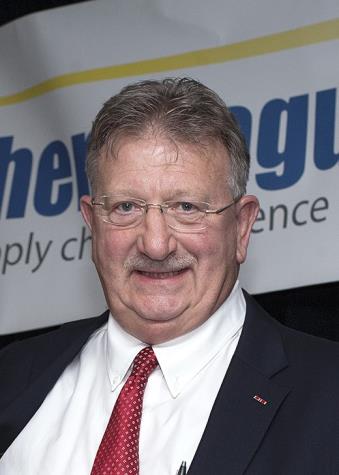
Gary Wagner, Bellwether Class of 2016, retired Vice President, Supply Chain Management, The Methodist Hospital System, Houston, TX
Wagner is a decorated veteran of the Vietnam War with two Bronze Stars and earlier this year attended with a fellow veteran Bellwether Hall of Famer and BLF Board Officer the opening day of the U.S. Medal of Honor Museum in Arlington, TX. Wagner shared his experience exclusively with BLF and Leaders & Luminaries in a personal essay that you also can read within Leaders & Luminaries' Boardroom section.
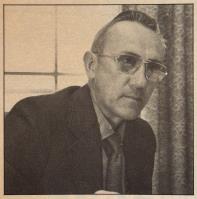
(1923-2015)
Claude J. Trafas (1923-2015), Bellwether Class of 2025, director of purchasing, Medical Center of Delaware, Wilmington, DE
During World War II, Claude Trafas served in the Polish Resistance as a sector commander instructor and intelligence officer for the British underground against the Axis powers. After the war ended in the late 1940s, he worked for the U.S. Army Occupation Forces in Germany, Belgium and France and as an executive with the International Refugee Organization.
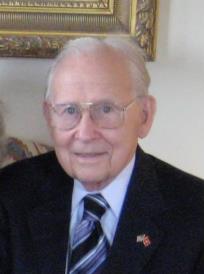
(1920-2012)
Pat Neff Groner (1920-2012), Bellwether Class of 2025, President and CEO, Baptist Health Care Corp., Pensacola, FL, and Co-Founder, Voluntary Hospitals of America Inc. (VHA)
Capt. Pat Neff Groner was a Marine pilot who served in the South Pacific Theatre during World War II, and upon returning to civilian life after the war, he moved to his wife's home state of Vermont where he interned at a Vermont hospital and served in the Vermont Air National Guard.
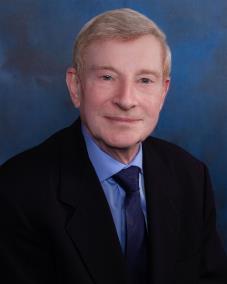
(1937-2023)
Ronald I. Denton (1937-2023), Bellwether Class of 2024, Founder and Advisor, RDA Healthcare Supply Chain Services, LLC, Oak Ridge, TN
Sergeant Major Ron Denton served as the Senior Medical Logistics Non- Commissioned Officer for the 5th U.S. Army Surgeons Command and as the Sergeant Major responsible for all of Walter Reed Hospital logistics operations. He was recognized in the Army for his leadership skills as the highest soldier position for the U.S. Army Medical Services Department (1956-1976). A Sergeant Major assists Officers in a battalion-sized force of 300 to 1,000 soldiers and leads soldiers and junior officers placed directly under his or her command.
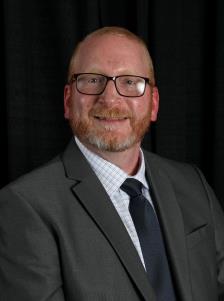
Jesse L. Stanton, Future Famers Class of 2023, Vice President, Supply Chain, Parkview Health
Stanton served in the U.S. Army for seven years, 1995-2002, honorable discharged after 3.5 years on active duty and 4.5 years in in Indiana National Guard with positions in force reconnaissance and security operations/combat lifesaver/squad leader. He also performed peacekeeping operations in Bosnia and Herzegovina (1998-1999).
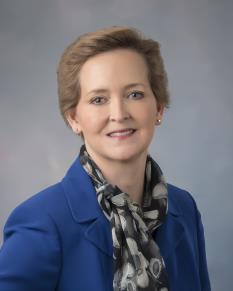
Donna VanVlerah, Ammer Honoree Class of 2021 and Future Famers Class of 2015, retired Vice President, Supply & Support Services, Parkview Health
VanVlerah, who is the first BLF dual award recipient, served in the United States Marine Corps for two decades, 1985-2005, as a logistician, specializing in supply chain, facility maintenance and change management. Before retiring from active military service in 2005, she served as the Deputy Director for the Maritime Supply Chain within the Defense Logistics Agency. During Operation Desert Shield and Operation Desert Storm in 1990-1991, VanVlerah served as an aide to then Brig. Gen. Charles Krulak, who served as commanding general of the 2nd Force Service Support Group and commanding general of the 6th Marine Expeditionary Brigade and Fleet Marine Force Atlantic during the Gulf War.
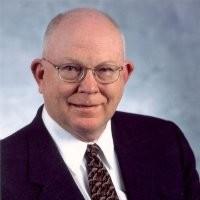
Capt. Terry R. Irgens, (1947-2017), Bellwether Class of 2019, Commanding Officer, Naval Medical Logistics Command (at retirement in May 1996)
During the early 1990s, Capt. Irgens led the Department of Defense's Medical Materiel Directorate to switch to a commercial prime vendor program from the traditional depot system, which represented a radical departure in materiel operations for the Defense Logistics Agency and the Defense Personnel Support Center, later renamed the Defense Supply Center Philadelphia. Irgens accomplished this during the first Gulf War, reinforcing the "active testing" of new concepts, and affected $700 million in medical materiel. He led the way in engaging in strategic partnerships with the Military Services' Medical Logistics Offices and the Department of Veterans Affairs.
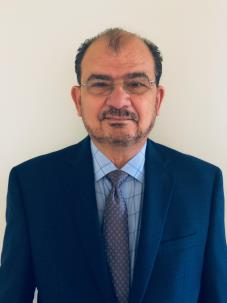
Nicholas C. Toscano, Bellwether Class of 2018, CEO, Julicon Advisors LLC
Toscano served six years in the United States Navy Seabees as Supply Corp Petty Officer 1st class. His military experience during the Vietnam era primarily included building and delivering field hospitals to Navy Special Ops, U.S. Marine Corp and U.S. Army fighting forces in southeast Asia. He also served as the supply corps/logistic management and firefighter lead at NAVFAC Headquarters, Pacific Beach, WA.
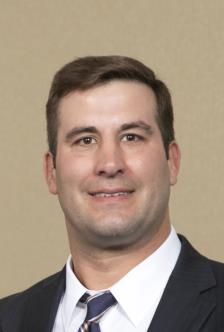
Troy Compardo, Future Famers Class of 2018, Director, Regional Supply Chain Operations, BJC HealthCare
Compardo served as Chief, Medical Administration, at Lt. Col, 126th Medical Group in the Illinois Air National Guard starting in 2006. Prior to that he served as artillery surveyor in the Arizona Army National Guard, 2000-2002, and in information management for the Illinois Air National Guard, 2003-2005.
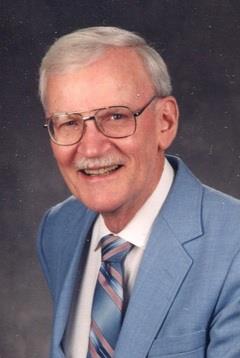
(1925-2016)
Hiram M. Lake (1925-2016), Bellwether Class of 2017, Director, Materials Management, St. Mary's Hospital, Rochester, MN
After graduating high school, the U.S. Navy drafted Lake and sent him to college for electronics training that included early radar studies. Following his collegiate experience, Lake served as a radio man for a Marine unit in the Pacific theater during World War II. Once Japan surrendered, Lake served as part of a Navy technical group that installed U.S. communications equipment in Japan.
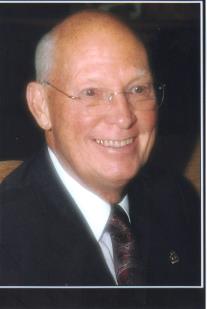
(1926-2011)
William E. Pauley (1926-2011), Bellwether Class of 2016, Director, Materials Management, Kaiser Permanente Sunnyside Medical Center
Pauley served during World War II as a scout-sniper in F Company, 2nd Battalion, 29th Marines, 6th Marine Division, who fought in the Okinawa campaign until he was wounded in the battle for Sugar Loaf Hill and received the Purple Heart. Like many combat veterans, he seldom spoke of his wartime experiences. Pauley was a past president of the 6th Marine Division Association.
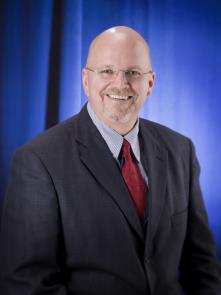
Michael A. Switzer, Bellwether Class of 2015, Vice President, Supply Chain, North Mississippi Health Services
Switzer served as a Flotilla Staff Officer for the U.S. Coast Guard Auxiliary.
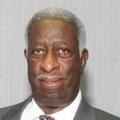
(1937-2011)
Earl G. Reubel (1937-2011), Bellwether Class of 2014, Senior Vice President, Kerma Medical Products Inc.
Reubel was drafted in 1960 and served for 10 years in the U.S. Army, beginning as a Private and completing his term as a Chief Warrant Officer and helicopter pilot during the Vietnam War.
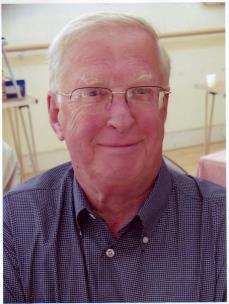
(1934-2013)
Donald E. Greenslade (1934-2013), Bellwether Class of 2013, Senior Associate, Patrick E. Carroll & Associates
Greenslade served in the British Army for two years (1952-1954) during the Korean War before embarking on a career as a hospital and health system supply chain executive in England.
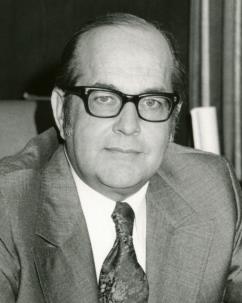
(1918-1983)
Paul E. Widman (1918-1983), Bellwether Class of 2013, Director of Operations, Cleveland Clinic
Widman served for two years (1941-1943) in the U.S. Navy during World War II.
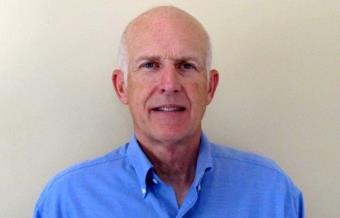
John H. Clarke, Bellwether Class of 2012, Senior Executive Supply Chain Consultant for Healthcare Supply Chain Solutions, SAIC
Col. Clarke served for nearly three decades in the U.S. Army, concentrating as Senior Medical Systems Program Manager for the Office of the Assistant Secretary of Defense, while he also led the development of the Defense Medical Logistics Standard Support (DMLSS) system used for healthcare logistics for all branches of the military. Earlier in his Army career, Clarke oversaw the development and fielding of the Theater Army Medical Materiel System (TAMMIS) to all Army hospitals and field units to support the healthcare needs of war fighters on the battlefield, most notably Operation Desert Storm in 1991 and the wars in Iraq and Afghanistan.
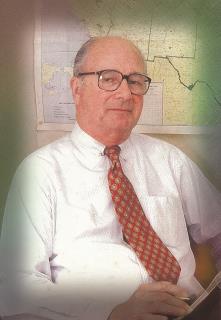
Paul V. Farrell, C.P.M. (1915-1997), Bellwether Class of 2012, Editor, Purchasing and PurchasingWorld magazines and other publications for the National Association of Purchasing Management (NAPM), now known as the Institute for Supply Management (ISM).
During World War II, Farrell served in field artillery for the U.S. 3rd Army in England, France and Germany for four years, earning the rank of Captain.
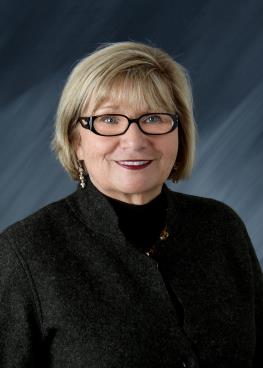
Roberta Graham, R.N., Bellwether Class of 2012, Executive Vice President, University HealthSystem Consortium
Prior to her supply chain career, Graham served as a nurse. From 1968 to 1973, she served as staff nurse at three military bases and as a head nurse of a 200-bed medical unit at the 6th Convalescent Center in the Republic of Vietnam.
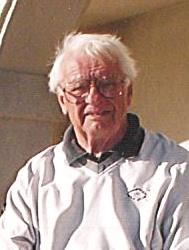
(1931-2020)
George O. Hansen (1931-2020), Bellwether Class of 2012, Lead Systems Design Consultant, American Sterilizer Co. (AMSCO), now part of STERIS Inc.
Hansen enlisted and served in the U.S. Air Force for two years, 1952- 1954, during the Korean War.
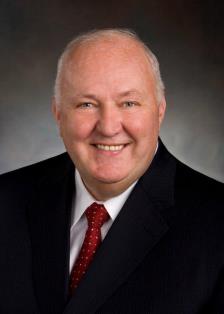
Robert A. Simpson, Bellwether Class of 2012, retired President and CEO, LeeSar and Cooperative Services of Florida
Simpson served in the U.S. Army as combat medic, serving two tours during the Vietnam War, and one tour in Korea.
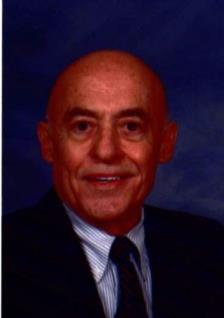
(1937-2015)
Carter F. Blake (1937-2015), Bellwether Class of 2010, Director of Group Purchasing, Vector Health Systems
Blake started his medical career at Brook Army Hospital in 1958, working as a corpsman washing, sterilizing and sharpening — if needed, reusable needles and syringes. Blake later was transferred to Fort Leonard Wood to assist in the EENT Clinic until his discharge in 1960.
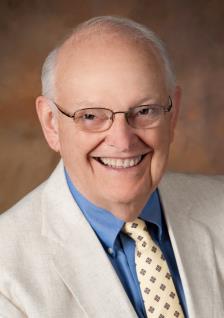
Daniel E. Mayworm, Bellwether Class of 2010, retired President, Mayworm Associates, retired Publisher and Editor, Journal of Healthcare Resource Management and Infection Control & Sterilization Technology magazines
Mayworm served in the United States Navy V-12 program from 1944 to 1947 and received his commission as an Ensign.
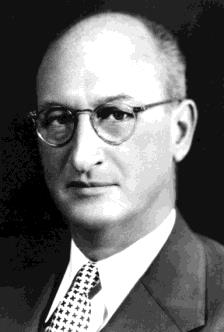
(1897-1986)
Foster G. McGaw (1897-1986), Bellwether Class of 2010, Founder, President and Chairman, American Hospital Supply Corp.
McGaw served in the U.S. Marine Corps during World War I and was stationed in Guantanamo Bay, Cuba.
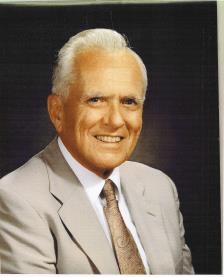
(1926-2015)
Brien Laing (1926-2015), Bellwether Class of 2009, Vice President, Corporate Distribution, Baxter Healthcare Corp.
During World War II, Laing served in the Royal Canadian Air Force — British Empire Air Training Program and as a Pharmacists Mate in the U.S. Navy.
Civilians supporting military operations ...
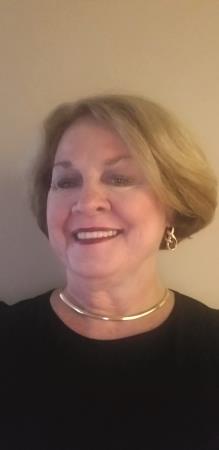
Kathleen Garvin, Bellwether Class of 2020, retired Chief, Systems Innovation and Integration Office for the Medical Supply Chain, Defense Logistics Agency, U.S. Department of Defense, Philadelphia, PA, and Program Manager for the Department of Defense
(DoD)/Department of Veterans Affairs (VA) Joint Incentive Funded Data Synchronization Program
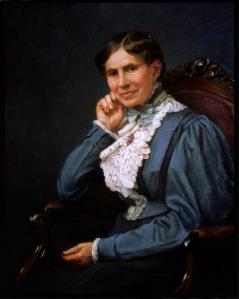
(1821-1912)
Clarissa H. "Clara" Barton (1821-1912), Founder and First President, American Red Cross and National First Aid Society
Barton was an educator, advocate and self-taught nurse who served as the nation's first female civilian quartermaster for the military during the Civil War and a pioneering healthcare supply manager and distributor for two prominent disaster relief agencies.
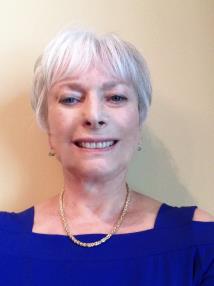
Sara "Sally" Bird, Bellwether Class of 2017, retired Deputy Director, Directorate of Medical Materiel, Defense Personnel Support Center, Defense Logistics Agency, Department of Defense
Editor's Note: This remains a living record to be updated continually as Bellwether Honorees, Ammer Honorees and Future Famers share their stories willingly. We assembled this information from interviews, internal research and submitted materials. If you would like to be added to this valued list or to update information, please email BLF at info@bellwetherleague.org.